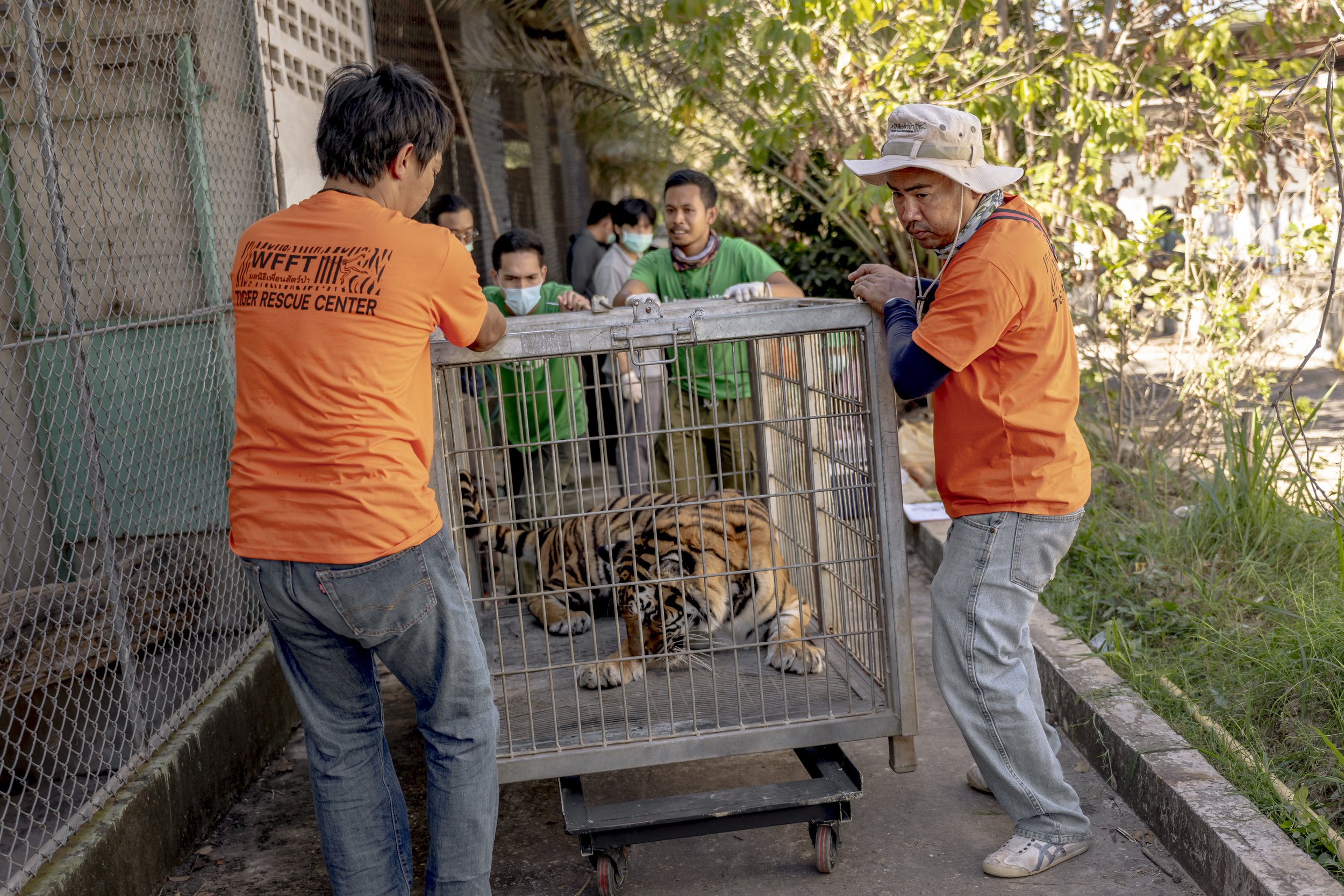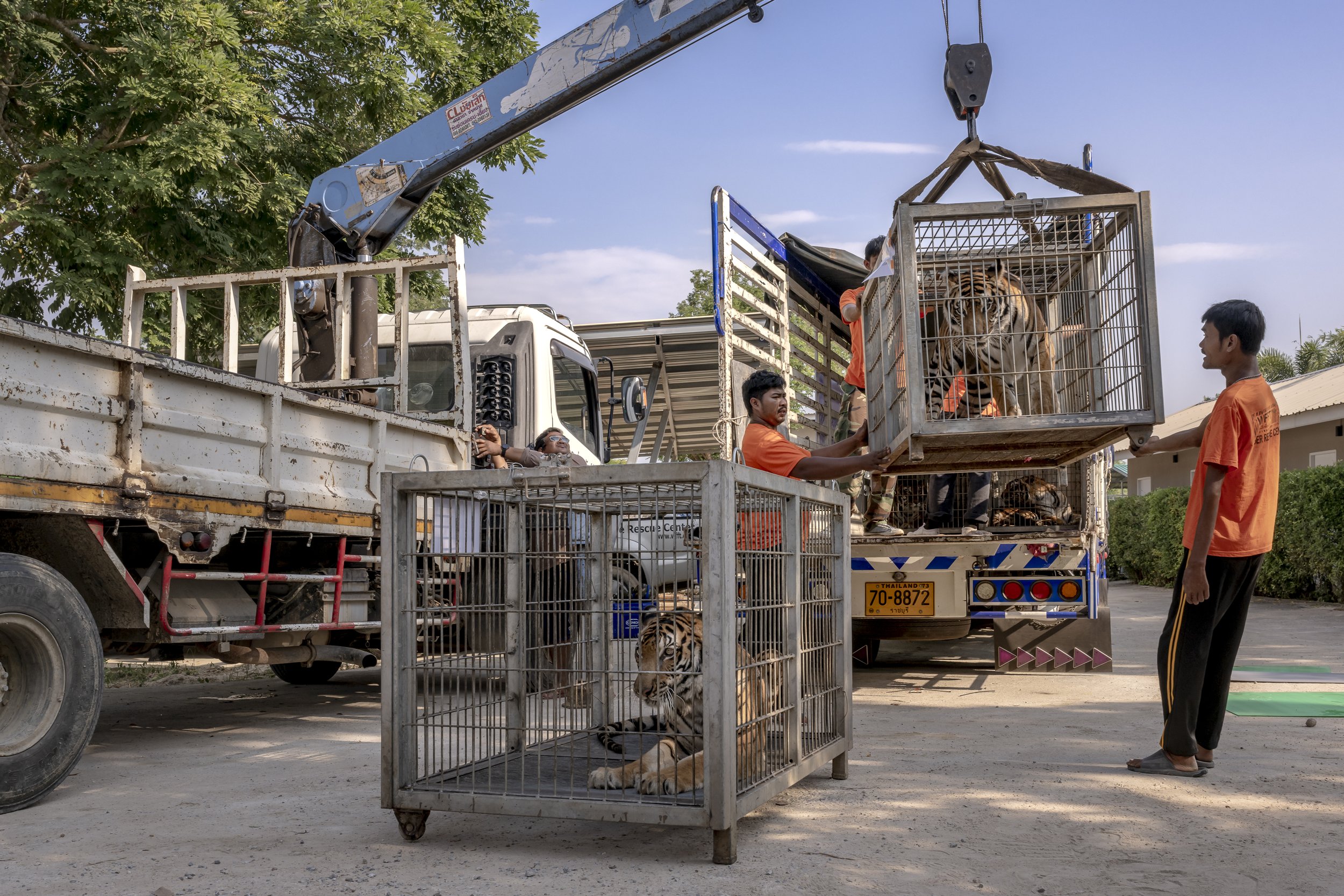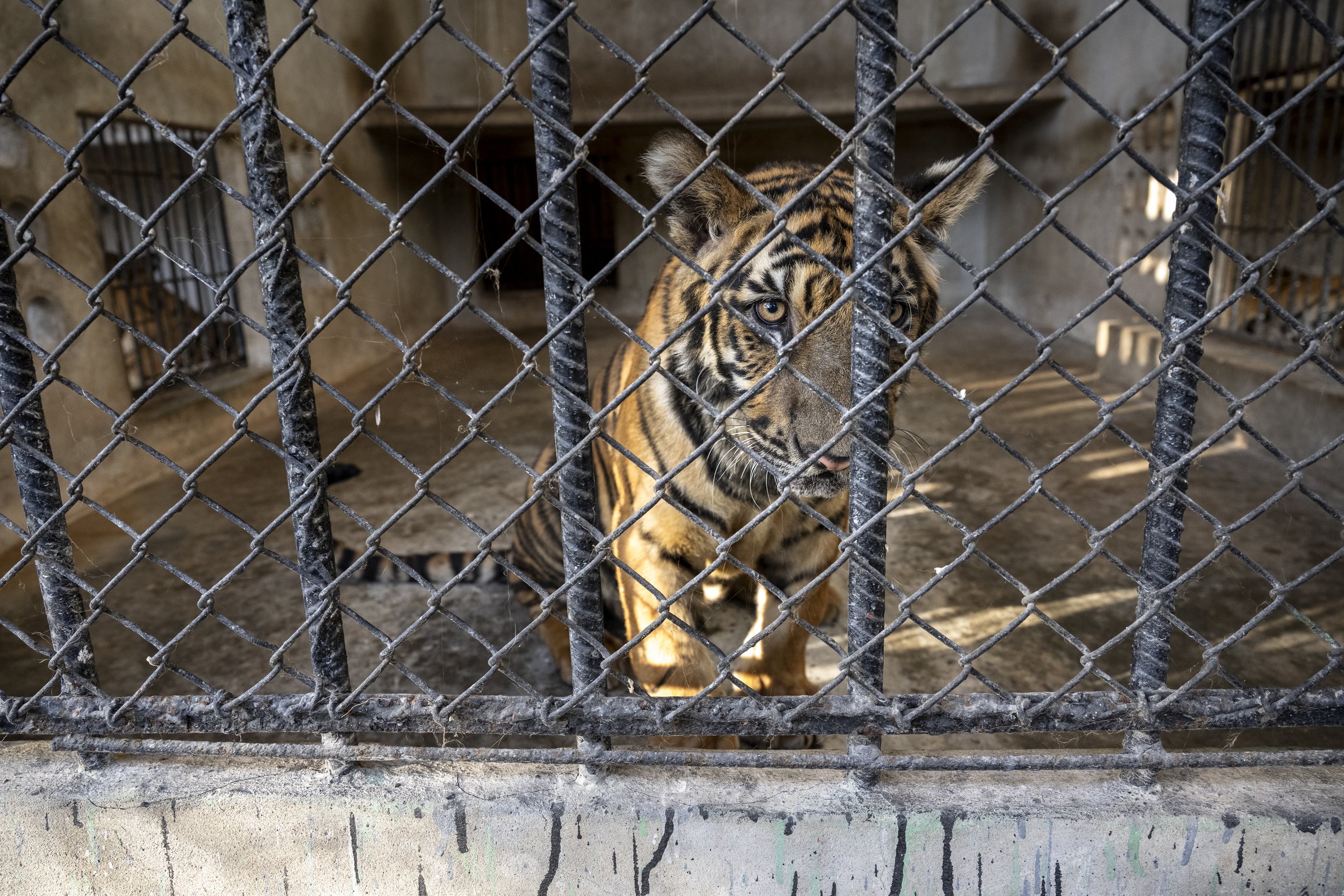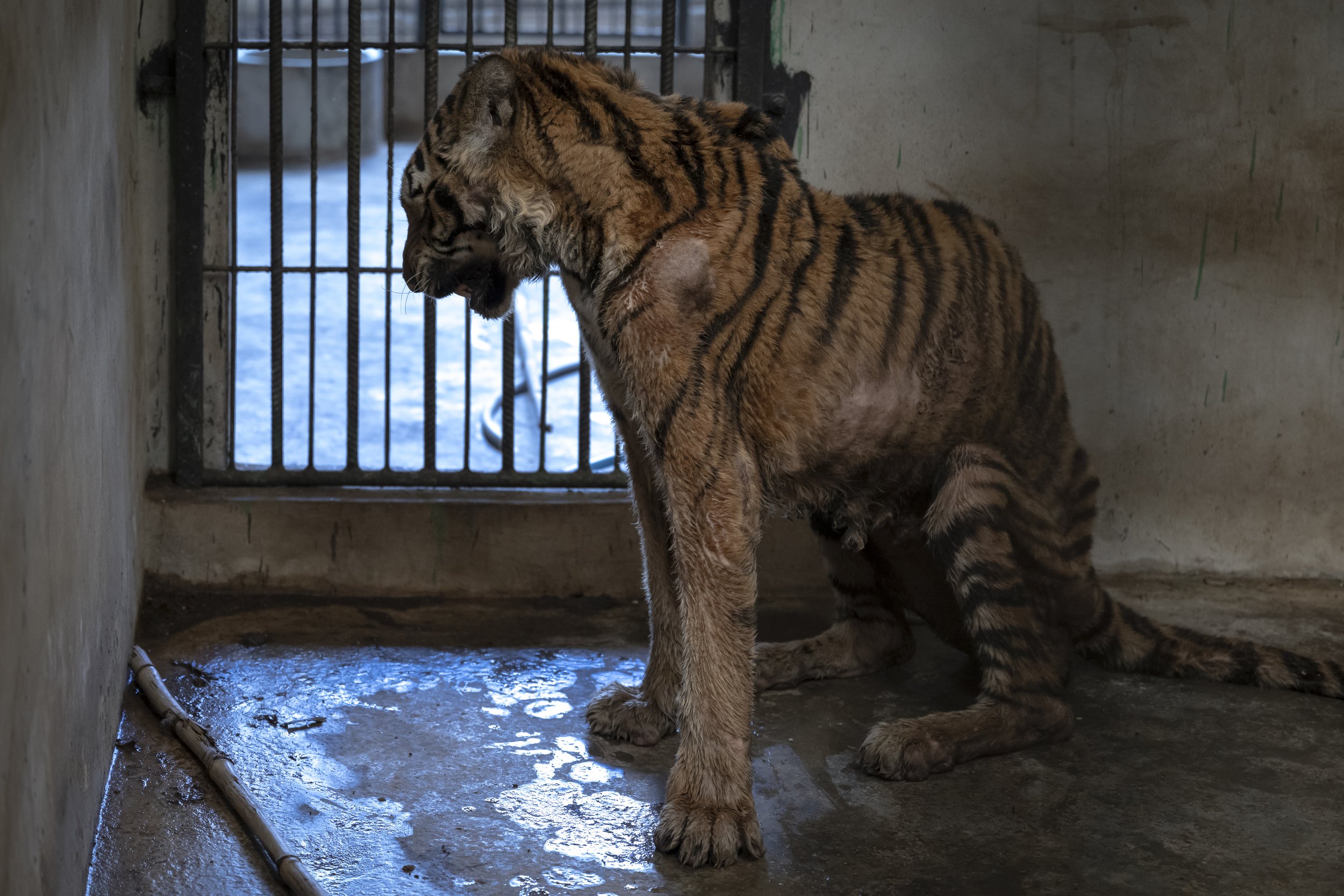Emaciated, Twenty-Year-Old Tiger Among 15 Big Cats Saved from Tiger Farm in Thailand
The historic rescue mission comes after the controversial tiger farm was closed by authorities following legal action over alleged illegal wildlife trading.
Elderly tiger Salamas, pictured, was among 15 big cats rescued from the tiger zoo. Credit: Amy Jones/WFFT
An emaciated, twenty-year-old tiger is among twelve elderly tigers and three leopards who have been rescued from an infamous tiger farm in northern Thailand.
Government wildlife officials visited the undisclosed captive tiger facility on December 16 following legal action over alleged illegal wildlife trading.
Elderly tiger Salamas, pictured, was among 15 big cats rescued from the tiger zoo. Credit: Amy Jones/WFFT
A team of vets and rescuers from wildlife rescue group Wildlife Friends Foundation Thailand (WFFT) were on hand to rescue the seized animals, in the first part of the largest tiger rescue operation by an NGO in Thailand’s history. It is expected that 35 tigers in total will eventually be rescued from the farm.
Rescuers move a sedated tiger. Credit: Amy Jones/WFFT
The initial rescue was said to be difficult and intense, with the first fifteen animals chosen on the basis of who required the most urgent medical care. Twelve elderly tigers and three ill leopards were selected, before being sedated, given initial health checks, and transported into transport cages that were loaded onto wildlife ambulances.
Among the animals rescued is an emaciated, elderly tiger named Salamas.
Salamas, pictured, was too weak to be sedated. Credit: Amy Jones/WFFT
While most other tigers were sedated so that they could safely be moved into transport cages, Salamas’s condition meant that the veterinary team chose not to due to the risk of her not waking up from the sedation.
Rescuers instead spent hours gently encouraging the twenty-year-old tiger with food so that she would walk from her concrete enclosure into the transport cage.
Although alarmingly skinny and with huge patches of fur missing across her body, rescuers are hopeful that Salamas will now begin to recover.
Other big cats rescued include a timid female tiger the farm simply referred to as “A-1”, and a twenty-year old male tiger named Rambo who has breathing difficulties.
Three leopards were also saved during the rescue. Credit: Amy Jones/WFFT
WFFT says that these animals have been kept in small, concrete enclosures for their entire lives, with many of them spending over twenty years in captivity.
The rescue tigers and leopards will now receive urgent medical care at WFFT’s wildlife rescue sanctuary in Thailand.
“After months of planning the biggest tiger rescue by an NGO in Thailand’s history, we are thrilled to now finally give these magnificent animals a new life at WFFT’s Tiger Rescue Centre”, said Edwin Wiek, founder and director at WFFT. “Sadly, they will never be able to return to the wild, but we can offer them the next best thing: a safe, sanctuary home where they can roam forested land, socialise with other tigers, and even swim in the lake.”
A rescue tiger arriving at WFFT’s Tiger Rescue Centre. Credit: Amy Jones/WFFT
It is believed that their new sanctuary home will be the first time that many of these animals will have felt grass beneath their paws and sunlight on their fur.
What is a Tiger Farm?
From zoos to exotic pets, it is estimated that there are around 1,700 tigers currently living in captivity in Thailand.
According to WFFT, many of these tigers are bred on so-called tiger farms. These include small- and large-scale facilities that can house dozens of tigers, where the animals are routinely bred so that new cubs can be sold to unethical zoos or kept as exotic pets.
Credit: Amy Jones/WFFT
Captive tigers are also farmed so that they can be illegally harvested for their body parts including bones, eyes and whiskers, which are controversially used in traditional Chinese medicine (TCM).
Thailand’s geographical position in the centre of Southeast Asia can lead to some captive tigers being illegally transferred across the border to international buyers. The province where the twelve tigers have been rescued from borders Lao PDR with a long stretch of the Mekong River separating the two countries. With many unofficial piers, it is difficult to control illegal trade across the river which has helped make the area a known hotspot for illegal wildlife traders.
Meanwhile in the wild, it’s estimated that there are less than 200 tigers living in Thailand, with small tiger populations dotted across the country’s forests and national parks.
We Have A Favor To Ask…
Species Unite amplifies well-researched solutions to some of the most abusive animal industries operating today.
At this crucial moment, with worldwide momentum for change building, it’s vital we share these animal-free solutions with the world - and we need your help.
We’re a nonprofit, and so to keep sharing these solutions, we’re relying on you - with your support, we can continue our essential work in growing a powerful community of animal advocates this year.
More stories:
Species Unite
A collection of stories of those who fight the good fight on behalf of animals.


















Evaluating drugs with cutting-edge technology instead of animal testing will improve drug safety and cut development times, the agency said as it reveals a roadmap to increase non-animal research techniques.